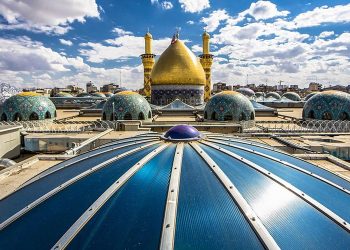An agreement was reached between Pakistan and the International Monetary Fund (IMF) yesterday, after which it is expected that Pakistan’s economic situation will improve significantly.
Efforts to reach an agreement between Pakistan and the IMF have been going on since last month because, in the absence of an agreement with the IMF, the country would have suffered a lot, but now an agreement has been reached with the IMF, let’s see. What is the economic benefit to Pakistan?
IMF statement
A statement issued by the IMF said that the seventh and eighth review issues have been settled under the IMF, but the IMF board will give final approval to the agreement. The IMF statement said that Pakistan must maintain a consistent supply-demand exchange rate, along with a proactive monetary policy and improve the performance of government agencies.
According to the statement, global inflation and delays in key decisions reduced Pakistan’s foreign exchange reserves, and the economy grew so fast due to excess demand that there was a huge deficit in foreign payments.
The IMF statement added that Rs1.17 billion would be available to Pakistan, but that Pakistan would have to adhere strictly to the current budget, with the provinces assuring to keep the budget deficit in check.
What conditions of IMF did Pakistan accept?
Pakistan has accepted a number of conditions from the international community to revive the IMF loan program. Under the agreement, the revenue target has been raised from Rs 7,000 billion to Rs 7,400 billion to increase revenue and reduce the budget deficit.
To achieve this, the government has increased the tax rate on persons earning Rs. 60,000 to Rs. 100,000 per month to 2.5%. The tax on the income group from IMF was only Rs. However, at the request of the IMF, a new tax rate of 2.5% has been imposed on it.
The primary budget for the IMF’s debt recovery program will be set at Rs 152 billion, which will require higher revenue collection.
To meet the tax target of Rs 7,400 billion, the IMF will raise additional funds for various taxes, one of which is the petroleum levy. The government had kept the petroleum levy at Rs 30 per liter in the budget for the next financial year, but under the IMF condition, the rate has been raised to Rs 50 per liter.
Depreciation of the dollar
Economists are linking the fall in the value of the dollar on the interbank and open market to the deal with the IMF yesterday. In the interbank market, the dollar fell by 10 paise to Rs 209, while in the open market, the dollar fell by Rs 2, after which the dollar was selling at Rs 209 in the open market.
According to currency dealers, the reason for the fall in the value of the dollar is Pakistan’s agreement with the IMF, which will have a positive impact on the country’s foreign exchange reserves, which are declining.
What will be the economic benefit for Pakistan?
It may be recalled that in Pakistan from April 11 to the third week of June this year, the value of one dollar against the rupee has increased. In just 40 days, the sharp rise in the value of the US dollar against the rupee has added Rs 3,600 billion to the country’s debt.
The rise in the value of the dollar has made oil, gas and foodstuffs more expensive for local consumers as Pakistan relies on imports to meet these needs locally.
According to experts, the biggest benefit of an agreement with the IMF will be the elimination of uncertainty, which is causing a decline in economic indicators in Pakistan. Economists say the biggest gain from the deal will be the rupee, which will support its declining value.
Experts say the agreement with the IMF has saved Pakistan from default. If there was no agreement with the IMF, Pakistan would have defaulted very quickly.



































